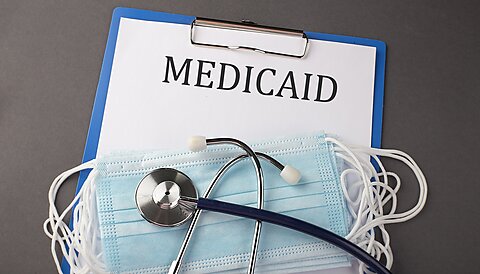Gene therapy researchers recently reported an encouraging development that can bring new hope to people at risk for cardiovascular disease. But how long will Americans have to wait before they can use it?
CRISPR (Clustered Regularly Interspaced Short Palindromic Repeats) is a gene editing technology that holds great promise for curing disease. Put simply, a compound is injected into a patient to alter a gene in the DNA and halt a disease process. One version of CRISPR‐based therapy is called “base editing,” which involves swapping out a single letter on the DNA molecule.
Verve Therapeutics is a Cambridge, MA‐based start‐up biotech company that has devised a way to use base editing to turn off the PCSK9 gene, which lowers LDL—“bad cholesterol”—a significant driver of cardiovascular disease. And it turns off the gene without changing the DNA. If this works as a “one‐and‐done” treatment to lower LDL, it can reduce the need for people to take long‐term medication for the problem.
Most people currently take statin drugs to lower LDL. But statins don’t work for everyone, and some have intolerable side effects. Researchers have developed two FDA‐approved PCSK9 gene inhibitor drugs that turn off the gene. But they must be injected, patients must take them regularly, and they are extremely expensive.
Verve Therapeutics injects nanoparticles into patients to turn off the PCSK9 gene. A preclinical trial on monkeys resulted in a 70 percent reduction in LDL cholesterol levels after just two weeks, with levels remaining low after a two‐year follow‐up. Because of this exciting development, Phase 1 trials on humans have been approved and are underway in New Zealand and the U.K. Alas, not so fast in the U.S. Last November, the Food and Drug Administration decided to put the clinical trial on hold, requesting that Verve provide the agency with much more data and modify the trial protocol.
If Verve’s breakthrough therapy eventually gets approved in New Zealand and the U.K., why shouldn’t Americans also be free to choose the treatment?
As Michael F. Cannon and I suggest here:
[A]t a minimum Congress should eliminate the FDA’s ability to restrict truthful speech by manufacturers about their products and allow American consumers to purchase drugs that have won approval from designated certification agencies, including foreign regulatory bodies. According to one study, recognizing drug approvals by regulatory bodies in Canada and Europe between 2000 and 2010 would have given U.S. consumers quicker access to 37 “novel” drugs for which “no other FDA‐approved prescription medicine had the same mechanism of action,” including 10 drugs treating mostly orphan diseases “for which no alternative therapy was available in the USA.” Such recognition would have allowed U.S. consumers to access those drugs a median of 13.6 months earlier.
In a blog post last November, I pointed out how Switzerland, Australia, the European Union, and Israel don’t block their residents from using medical devices and drugs approved in other developed countries. Some lawmakers call this policy reform “reciprocity.”
With rising health care and pharmaceutical costs gaining increased attention from lawmakers across the political spectrum, it is time that they seriously consider this intermediate step toward respect for patient autonomy and freedom of choice in health care.




